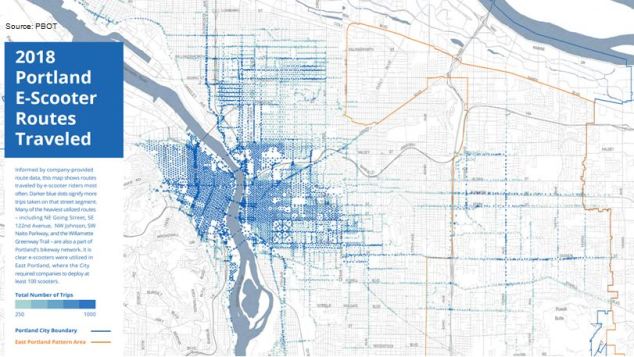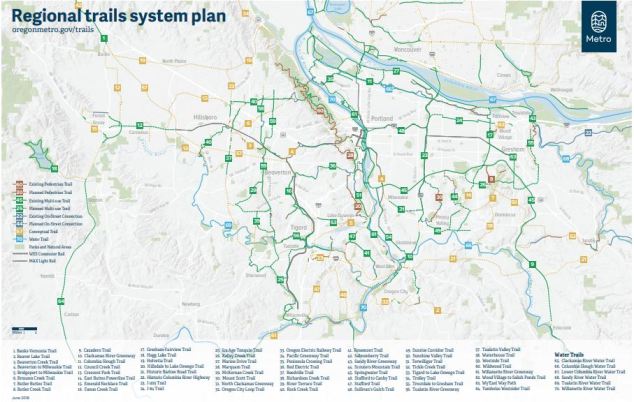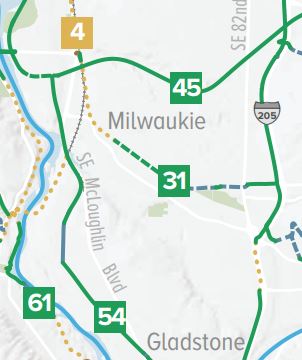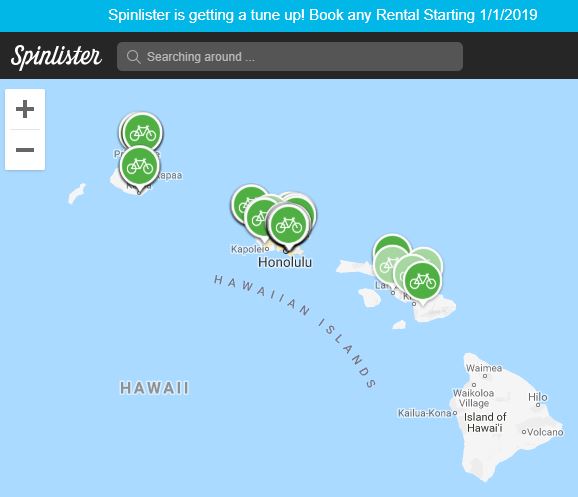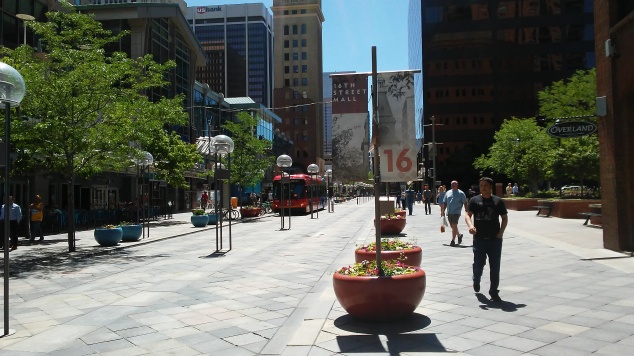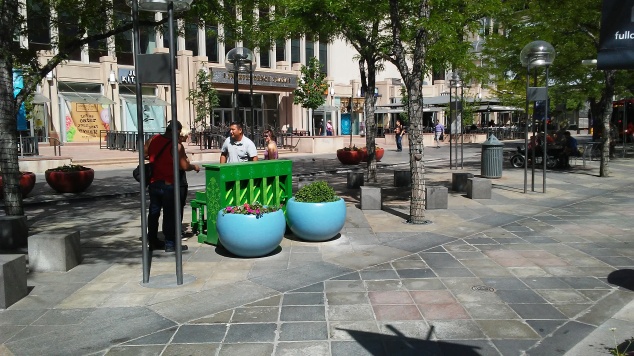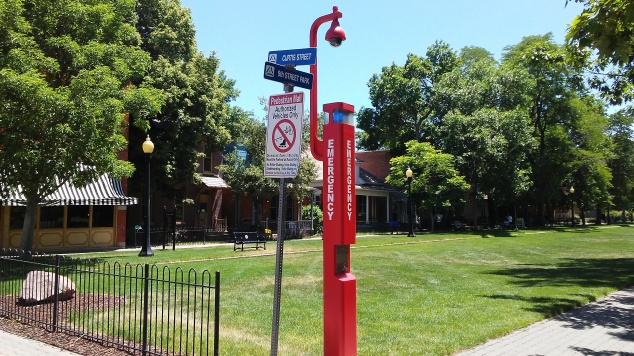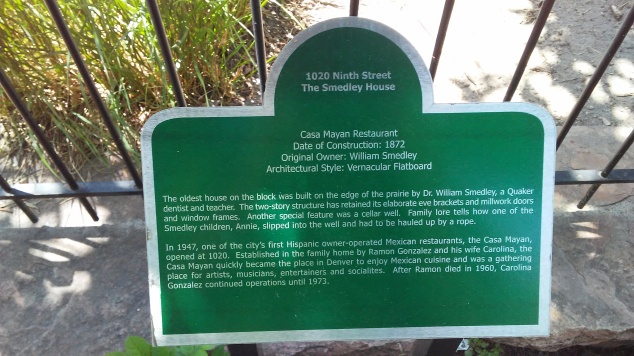Is the Clackamas Regional Center ready for dockless bikeshare and scootershare? I have been asking this question ever since I moved back to Oregon last year.
Small Group Activity at APBP Conference
My fellow panelists from Chicago and Ottawa and I wanted to get help from our audience to answer the question. Before I share how we used an interactive group activity, the below photo shows my panel. While we had been emailing for months to coordinate our presentations and group activity, I met Maggie and Matt in person for the first time during the Association of Pedestrian and Bicycle Professionals Conference in Portland. I am not sure when our paths will cross again.
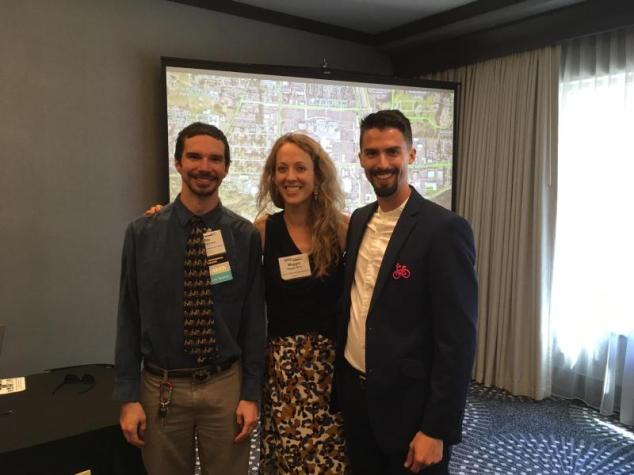
APBP Conference panel from left to right (Ray Atkinson, Maggie Melin from Chicago, Matt Pinder from Ottawa)
We used a small group activity during our session at the Association of Pedestrian and Bicycle Professionals Conference in Portland last Monday. Our audience was large enough to form six small groups of about eight people per group. This was a good amount of groups for my fellow panelists and me to walk around to each group to answer questions and provide guidance.

Small Group Activity at APBP Conference
All of the groups agreed that it is not safe enough to bike or scoot in the Clackamas Regional Center. Since the Clackamas Town Center parking lots should be less stressful to bike and scoot through than being on the surrounding roads, every group pitched using the parking lots to provide a safe route for biking and scooting. Yes, everyone realized that the parking lots are privately owned so the property owner would need to agree to the plan.
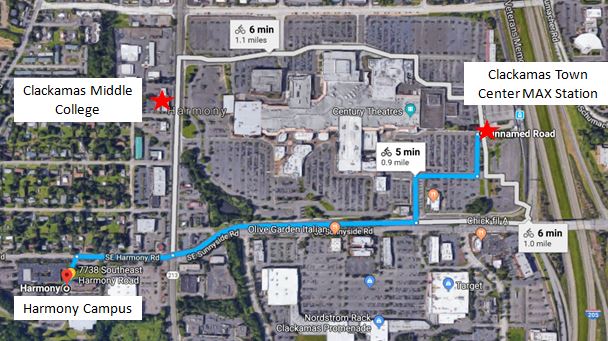
Map of Clackamas Regional Center. Created by Ray Atkinson using Google Maps.

Preparing the Clackamas Regional Center for dockless bikeshare and scootershare
Even though I have seen scooters from Portland’s first and second pilot programs ridden and parked in the Clackamas Regional Center, Clackamas County does not have a scooter pilot program. Yes, I already discussed this issue in this April post. While Clackamas Town Center has a Happy Valley address, it is officially in unincorporated Clackamas County so Clackamas County would need to create a scooter program.
I also want to note that I have no solid evidence about how many scooters from Portland’s pilot programs have been ridden and parked in the Clackamas Regional Center. I asked the City of Portland for this data and they would only share the below map, which only shows scooter trips inside the City of Portland. While they realize that scooters from their program have been ridden and parked outside the City of Portland, they have not shared any data to help me with planning efforts in Clackamas County. Since the scooter companies want to avoid fines, they are likely not sharing data about scooter trips outside the City of Portland so the City of Portland likely does not have this data.
As the below document shows, which I found in Ordinance 2174, the City of Milwaukie annexed Harmony Road to SE 80th Avenue and Clackamas Community College (CCC)’s Harmony campus on July 16, 2019. If the City of Milwaukie decides to continue their scooter pilot after the current pilot ends next June and expand it citywide then the newly annexed area will be included in the scooter pilot. While CCC has not taken an official stance on scooters, I have already been talking with the City of Milwaukie so we can both be ready when Milwaukie decides to include Harmony campus in their scooter pilot.
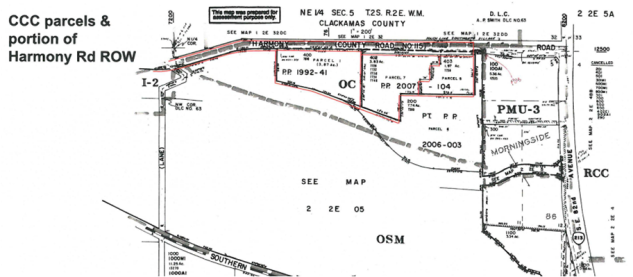
Milwaukie annexed Harmony Road to SE 80th Ave and CCC’s Harmony Campus
Since Harmony campus is adjacent to unincorporated Clackamas County, many CCC and Clackamas Middle College (high school) students, faculty, staff, and visitors travel between Harmony campus and the Clackamas Town Center MAX Station, TriMet buses and the CCC Xpress Shuttle are not reliable enough to compete with the car, and Harmony campus may have to build more car parking if enough people do not shift to other modes, I believe Clackamas County will receive pressure to allow scooters in the Clackamas Regional Center. I am vice-chair of the Clackamas County Pedestrian and Bikeway Advisory Committee (PBAC), so I am helping Clackamas County staff prepare for this pressure. I will be presenting about this potential pressure during the PBAC’s September 3 meeting.
Studying for the American Institute of Certified Planners (AICP) Certification Exam
While I appear to have an endless supply of ideas to blog about, I will need to shift my focus through November on studying for the American Institute of Certified Planners (AICP) Certification Exam. I registered to take this 3.5-hour exam on November 10. Since I did not pass the exam on November 10, I plan to keep studying and take the exam again in May. I will continue blogging after passing the exam.


